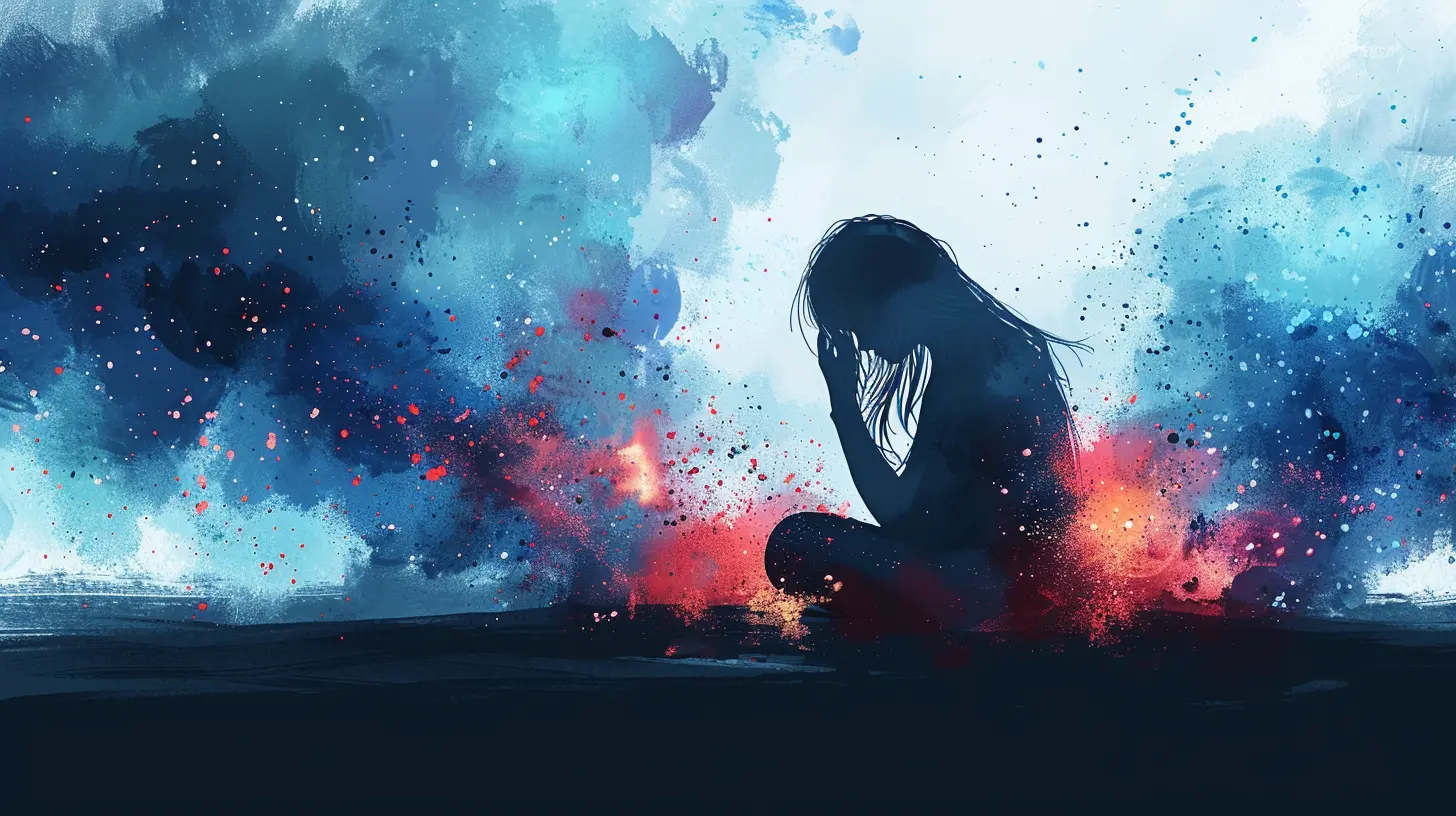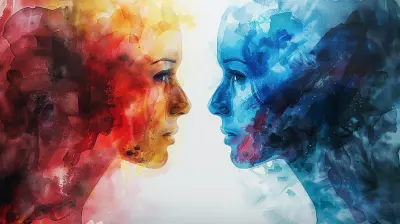The Psychology of Shame: Why Mental Health Stigma Can Be So Damaging
18 August 2025
Let’s be real—talking about mental health still feels like walking through a minefield. Even though we’re living in the age of open conversations, hashtags, and therapy memes, the stigma around mental health hasn’t disappeared. And the main culprit? Shame. That sneaky, heavy emotion that whispers, “There’s something wrong with you.”
In this article, we’re going to dive deep into the psychology of shame. We'll talk about where it comes from, how it sticks to mental health like super glue, and why it can do some serious damage if we don’t tackle it head-on. Ready? Let’s unpack this emotional baggage together.
What Exactly Is Shame?
Shame isn’t just feeling bad because you forgot your friend’s birthday or spilled coffee on your shirt during a work meeting. Nope, it runs deeper than embarrassment or guilt.Shame is the internal belief that something is fundamentally wrong with you. Not with your actions—but with you, as a person.
It’s the soul-crushing thought of, “I am not enough,” or “If people really knew me, they’d run the other way.” It’s when you start defining yourself by your struggles. And it thrives in secrecy.
Guilt vs. Shame: What’s the Difference?
Let’s clear something up because people often confuse guilt with shame.- Guilt says: “I did something bad.”
- Shame says: “I am bad.”
See the difference? Guilt is about behavior; shame is about identity. And while guilt can actually motivate us to make positive changes, shame doesn’t do us any favors. It isolates, tears down self-worth, and keeps people from reaching out.
When it comes to mental health, this is where things get really tricky.
How Shame Shows Up in Mental Health
Mental health issues are not personal failures. But tell that to someone who’s been criticized, judged, or told to “just get over it.” Shame shows up in sneaky ways:- Feeling like you have to hide your struggles.
- Thinking therapy is for “crazy people.”
- Pretending everything is fine while you're falling apart inside.
- Believing you're weak for needing help.
People often suffer in silence because of these internalized ideas. And guess what? The longer we keep things hidden, the worse they tend to get. Shame thrives in secrecy, remember?
The Roots of Mental Health Stigma
If shame is the monster, stigma is the dungeon that keeps it locked in. But where does this stigma come from?- Cultural beliefs – Many cultures value toughness, stoicism, and keeping personal problems to yourself.
- Fear of being labeled – Words like “crazy,” “unstable,” or “psycho” are still tossed around like candy at Halloween.
- Media portrayal – Let’s be honest, TV and movies haven’t always done the best job representing mental health with compassion or accuracy.
- Family dynamics – Sometimes, growing up in an environment where emotions were ignored or punished plants the seed of shame early on.
This blend creates a perfect storm: people suffering, blaming themselves, and avoiding help.
Why the Stigma Is So Damaging
Now that we understand how shame and stigma are tied together, let’s talk about why this cocktail is so harmful.1. It Keeps People From Seeking Help
This might be the most obvious consequence, but also the most heartbreaking.Imagine being physically sick and denying yourself medical help because you're ashamed. Sounds ridiculous, right? That’s exactly what stigma does for mental health—it convinces people to suffer silently, sometimes for years.
Going to therapy doesn’t mean you’re broken. It means you're brave enough to face your fears and want a better life.
2. It Fuels Negative Self-Talk
The voice of shame is loud, mean, and persistent. It says things like:- “You’re not strong enough.”
- “You’ll never get better.”
- “Everyone’s judging you.”
Over time, this kind of inner dialogue chips away at your self-esteem and confidence. It’s like trying to run a marathon with bricks in your backpack.
3. It Damages Relationships
When you’re ashamed of your mental health, you might isolate yourself. You push people away, withdraw, or pretend everything’s fine.But relationships need honesty and vulnerability to grow. When shame takes the wheel, it drives a wedge between you and the people who care about you most.
4. It Reinforces the Cycle
Shame leads to secrecy, which leads to suffering, which leads to more shame. And round and round we go.Breaking this cycle isn’t just about addressing the symptoms—it’s about challenging the toxic beliefs that fuel it in the first place.
The Science Behind Shame
Let’s get a little nerdy for a second—because understanding shame on a neurological level can actually help us fight it.Studies show that shame activates the same areas of the brain responsible for pain. We’re talking about real, physical discomfort. That’s why shame doesn’t just feel bad emotionally—it actually hurts.
Plus, our brains are wired to avoid danger. So when shame makes us feel like we’re about to be rejected or exposed, our instinct is to hide. It's an evolutionary survival tactic gone rogue.
Is There Any Good Side to Shame?
Believe it or not, shame wasn’t born evil. In small, manageable doses, it can help us stay connected to social norms and build empathy. For example, feeling a bit of shame after hurting someone’s feelings can push us to apologize and grow.But when it becomes chronic and internalized—especially around mental health—that’s when it turns toxic.
It's like salt: a pinch adds flavor, but too much ruins the dish.
How to Break Free from Shame and Stigma
So, how do we loosen shame’s grip? It’s not about pretending it doesn’t exist. It’s about shining a light on it and saying, “You don’t get to run the show anymore.”Here are some simple, not-so-easy steps to get started:
1. Talk About It
This is where the magic happens.Whether it’s with a friend, therapist, or support group, naming your shame out loud strips it of its power. Vulnerability might feel scary, but it’s the antidote to shame.
2. Challenge Your Inner Critic
Start noticing your internal dialogue. Would you talk to a friend the way you talk to yourself? If not, it’s time to change the script.Replace “I’m weak for feeling this way” with “I’m doing the best I can, and that’s enough.”
3. Educate Yourself and Others
Knowledge is power. The more you learn about mental health, the more you'll realize how common and normal it is to struggle.And when you share your knowledge, you help dismantle stigma for everyone else too.
4. Surround Yourself with Support
Find people who get it. Community is the armor against shame. Whether it's online or in person, being part of a group that embraces mental health conversations can change everything.5. Show Compassion (To Yourself and Others)
No one gets through life without scars. Be gentle with yourself. Practice self-care that feeds your soul—whether that’s journaling, meditating, painting, or simply taking a nap.Rewriting the Narrative
We’ve all absorbed harmful messages about mental health. Stuff like “just toughen up” or “you’re being dramatic.”But the truth is, vulnerability is strength. Asking for help is courageous. Struggles don’t make you weak—they make you human.
Let’s start rewriting the story, one honest conversation at a time.
In Conclusion: You’re Not Broken. You’re Brave.
Shame is loud, but it’s not the truth. Mental health stigma may have you believing that you’re alone, damaged, or unworthy—but those are lies shame tells in the dark.The more we talk about our mental health with honesty, empathy, and courage, the more we kick shame to the curb.
If you’re struggling, there’s nothing wrong with you. You’re not broken—you’re brave. And even on your messiest days, you are worthy of love, compassion, and support.
Always remember, healing doesn’t happen in silence. It happens in connection.
all images in this post were generated using AI tools
Category:
Mental Health StigmaAuthor:

Ember Forbes
Discussion
rate this article
1 comments
Kyle Yates
This article insightfully addresses how shame and stigma hinder mental health conversations, emphasizing the need for compassion and understanding in society.
September 21, 2025 at 4:43 AM

Ember Forbes
Thank you for your thoughtful comment! I'm glad you found the article's message on compassion and understanding important in addressing mental health stigma.


